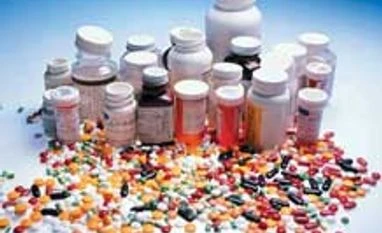J R Vyas, chairman and managing director of Dishman Pharmaceuticals and Chemicals, a leading bulk drug maker and contract research and manufacturing services (CRAMS) player, said, "There are several products where China is very price competitive. However, there are some other products where India has an edge." His firm is trying to move to manufacturing niche segment products which would act as a differentiator when trying to tap both the domestic and export markets. "As a strategy we are moving into niche products. Before entering any new segment, we weigh whether there is competition from China or not, and accordingly decide," he explained.
Sunil Parekh, advisor, Crisil, pointed out that the import of Chinese bulk drugs is growing at the rate of around 30 per cent over the past few years. "The reason behind the growing popularity of Chinese bulk drugs are two; one is price and the other is quick availability," he said. He, however, added at the same time that with the Chinese yuan strengthening against the dollar, there is no threat in the medium term.
More From This Section
In the longrun, however, the situation can turn tricky. As Daara Patel, secretary general of the Indian Drug Manufacturers' Association (IDMA) explained, "The balance of trade is definitely in favour of China. They have tremendous government support which helps them offer active pharmaceutical ingredients (APIs) at cheaper prices."
Chinese APIs are approximately 15-20 per cent cheaper compared to Indian APIs, and over 50 per cent of bulk drugs used in the industry for making formulations come from China. Patel added that IDMA had presented a white paper on the issue to the government sometime back. In it the association has clearly stated, "The recent trends of globalisation has seen an erosion of API manufacture in India, mainly due to the unhealthy competition from China due to dedicated large volume production plants sponsored by the State. Not to forget the fact that transaction costs in China are far lower than what is prevalent in India."
Further,industry players pointed out that the timeline for getting approval for APIs from China's State Food and Drug Administration (SFDA) is around 2-3 years and China is not keen to import either.
While, the Chinese competition is hurting domestic bulk drug makers, it is indeed a boon for the formulation makers. An Ahmedabad-based formulation maker which exports to regulated markets said on grounds of anonymity that "By buying cheaper Chinese APIs, we are able to quote more competitive prices in the international market for our generic formulations."
However, the industry has raised concerns that in the long run, once the Chinese gain a strong foothold over the Indian market, they would be in a position to command prices.
"Whilst low prices of Chinese origin APIs are attractive, this phenomenon could only be temporary as nothing would stop them from increasing prices once they are aware of the fact that Indian manufacturers of APIs have closed down due to cut throat competition. This could be a death knell for the pharmaceutical industry in India as some of the key APIs required for formulation manufacture would not be available," the IDMA paper states.
)